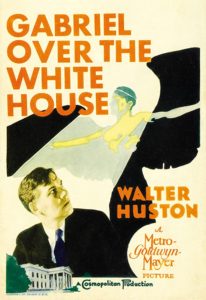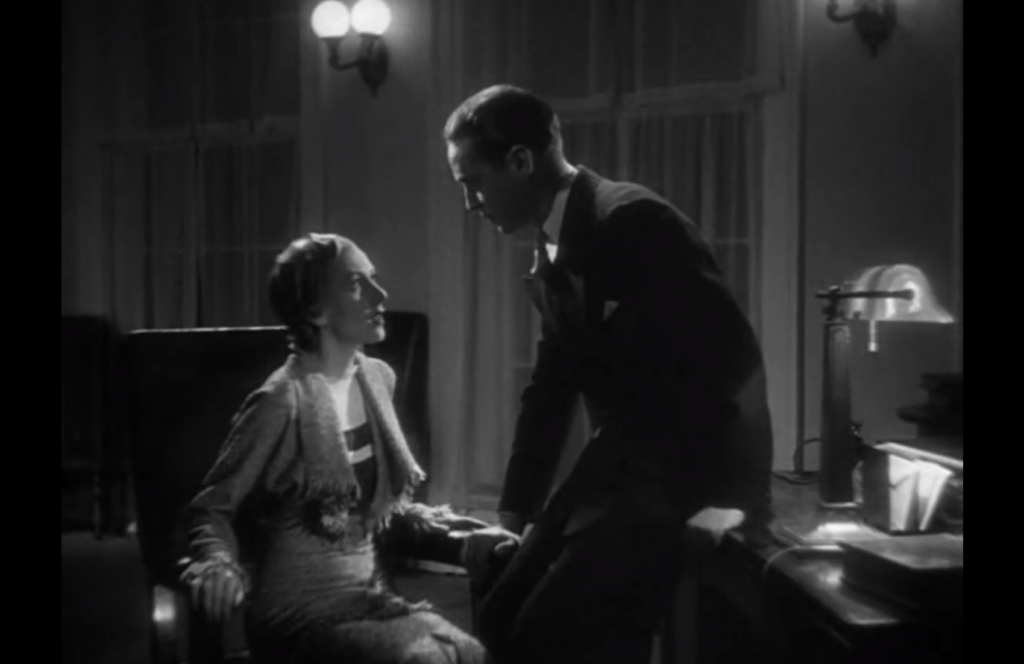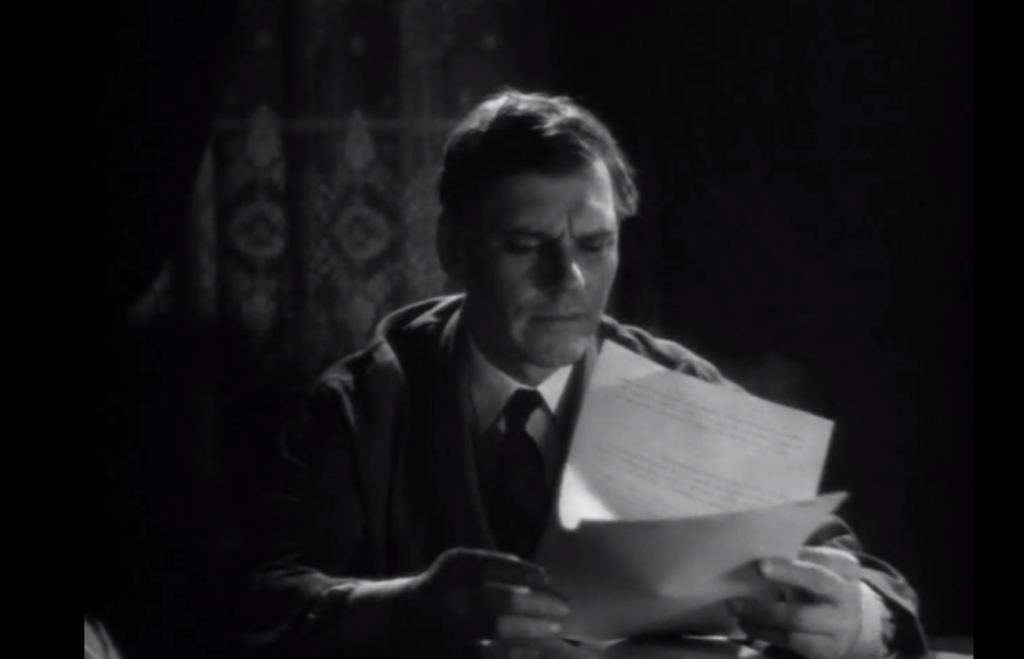“We felt from the beginning that the president is really two men — but I became aware tonight, somehow, of a third being.”
|

Synopsis:
When the newly elected president of the United States (Walter Huston) is injured in a car accident, he awakens a completely different man, surprising his top aide (Franchot Tone) and his personal secretary (Karen Morley) with a sudden passion for the people.
|
|
Genres:
- Character Arc
- Depression Era
- Fantasy
- Franchot Tone Films
- Karen Morley Films
- Walter Huston Films
Review:
Made during the height of the Great Depression (just before the start of the New Deal), this fantasy film starts with a far-out premise: what if our president was suddenly invested with a supernatural version of a TBI-induced extreme personality change, shifting from a typically grandstanding but ineffectual politician to one who scolds his colleagues (“You’ve been traitors to the concept of democracy upon which this government was founded!”) to a dictator-like leader (“I can repudiate anything!”) before ordering notorious bootlegging criminals to be murdered by firing squad and world leaders to destroy their weapons? Such is the wild tale on display in this cinematic curio, a political morality tale which showcases an eerie form of fascism emerging in a figure who initially presents as an inspiring hero of the people. As DVD Savant writes in his interesting and fact-filled review, “This well made fantasy will perplex ordinary viewers while leaving political thinkers with their mouths hanging open.” It would make a fascinating double-bill with The Man Who Could Work Miracles (1936), also about the inception and outcome of supernaturally-driven “omnipotence”.
Note: I was unaware of Karen Morley’s HUAC-incited career decline; given her life-long interest in labor activism, it’s fitting that she co-starred in this film, Our Daily Bread (1934), and Black Fury (1935).
Redeeming Qualities and Moments:
- Luminous cinematography


Must See?
Yes, once, for its unique storyline and historical relevance. Listed as a Cult Movie and a Personal Recommendation in the back of Peary’s book.
Categories
Links:
|



One thought on “Gabriel Over the White House (1933)”
A once-must, for its unique place in cinema history. As per my post in ‘Film Junkie’ (fb):
“Gentlemen, I suggest you read the Constitution of the United States.”
‘Gabriel Over the White House’: In 1933, British novelist Thomas F. Tweed concocted a dystopian fantasy called ‘Reinhard’ which he set in the American political future (in 1950). The book related the story of a Republican Party puppet, elected POTUS, who – as the result of very direct divine intervention – pulls the rug out from under his own Party and, through what has been described as “benevolent fascism”, puts America on the road to prosperity and the world on the road to peace. (I’ve not read the book.)
Finally finding something in literary form which reflected his own progressive political views, William Randolph Hearst snapped up the property so that his film branch could produce it. Hearst’s projects were released through MGM – whose head was staunch Republican Louis B. Mayer. Rightfully sensing that the finished film was a thinly-disguised attack on Herbert Hoover, Mayer was incensed and tried to stifle the film. However, though a portion of it was altered (with the Hays censorship office also interferring), the film was still released (once Hoover was out of office and Roosevelt was in). It was largely embraced by the public – and it got its star (Walter Huston) a personal White House invitation from Roosevelt.
Seen through the lens of our current (ahem) Administration, ‘GOTWH’ makes for fascinating viewing. It’s not without complete hooey (I’ve always found *any* talk of world peace, anywhere… quaint, but, of course, there must be an ideal to aspire to). Its title notwithstanding, (outside of some lighting effects) there’s scant reference to religious specifics (i.e., no explanation as to why an all-powerful, omniscient Being requires an errand boy: Gabriel – except that the author or screenwriter may have been Catholic). One might find the film just as powerful if Hammond’s (Huston’s) sudden turnaround were brought on by a crisis of conscience. ~ except that a higher force leaning in from the universe secures impact.
Whatever faults the film may have, it’s not without thought-provoking content. This Wikipedia link details what was going on in the US at the time the film was released:
https://en.wikipedia.org/wiki/Gabriel_Over_the_White_House